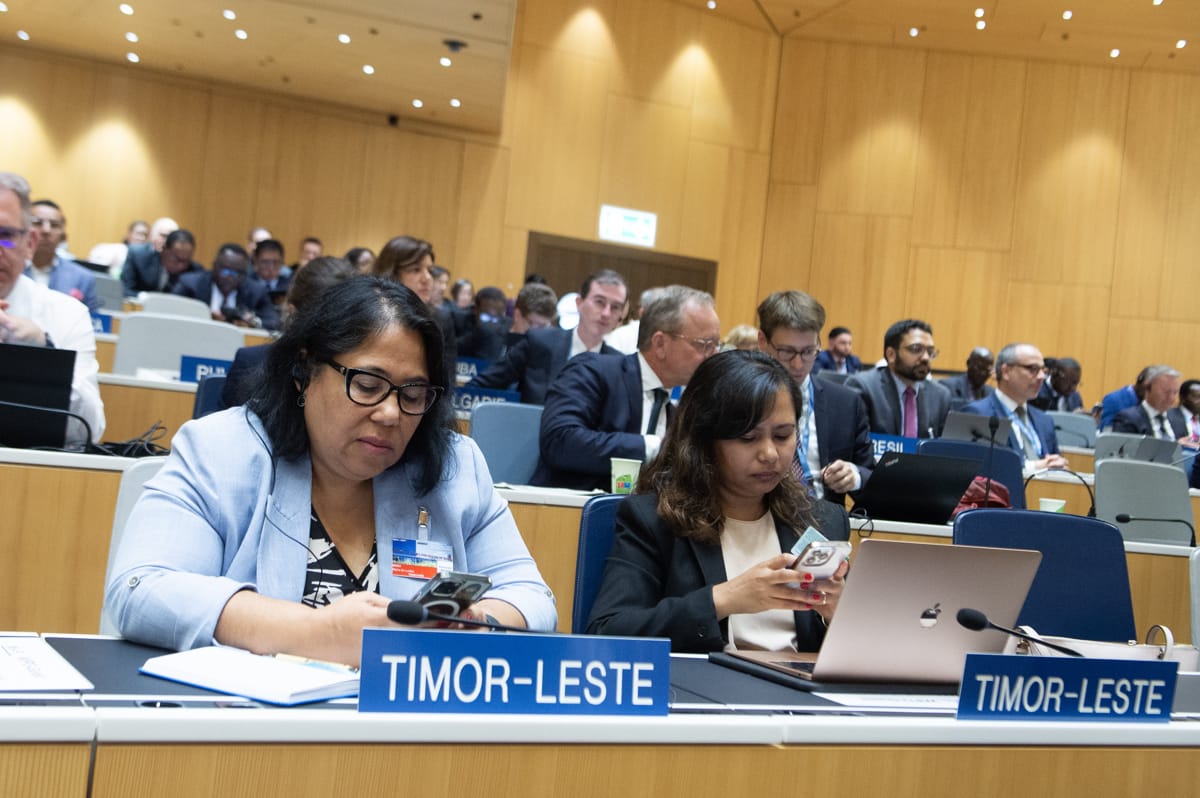Timor-Leste is on the brink of a digital revolution with the anticipated arrival of a submarine cable promising faster and more affordable internet access.
At present, only 44.3 per cent of the Timor-Leste population enjoys internet connectivity, according to DataReportal.com, with slow speeds predominating – an average of 4.85 Mbps for mobile and 6.10 Mbps for broadband. Timor’s internet service remains not only slow and unreliable but also prohibitively expensive, as many citizens – many whom live on barely more than $2 per day – spend up to $1 daily for access. This places Timor-Leste among the countries with some of the slowest and most costly internet services globally.
The Timorese government has prioritised the submarine cable as a critical component of its broader broadband strategy. In May 2022, an agreement was formalised between Timor-Leste and Australia to build a submarine cable, with expectations to be operational by April 2025. The Ministry of Transport and Communications anticipates that internet costs could drop by as much as half, significantly boosting speeds through a direct connection to international networks.
However, this optimism is tempered by concerns that improved connectivity alone will not address the deeper digital infrastructure challenges that Timor-Leste faces.
While telemedicine could expand access to healthcare in remote areas, substantial investments in health infrastructure are essential to fully realise this potential.
Timor-Leste’s market is relatively small for its internet service providers to share, meaning that government support is still essential to improve infrastructure and effectively regulate the industry. Ensuring reliable service will require comprehensive maintenance plans, disruption management, and strong security protocols – functions usually fulfilled by private enterprise.
Still, improved connectivity could stimulate the economy, particularly through e-commerce and digital entrepreneurship, driven by Timor-Leste’s youthful population. The Timor-Leste government has also introduced a new legal framework for e-commerce and electronic signatures, which came into effect in August, aimed at fostering economic growth and innovation. This law also bans unsolicited commercial messages. Businesses must ensure their websites are compliant, implement secure payment systems, and train staff on the new requirements.
But the country’s heavy reliance on cash poses a significant challenge. A 2023 UN Capital Development Fund survey revealed that Timor-Leste’s cash-based economy inhibits the growth of digital services, particularly e-commerce. This also stifles local content creators. Abrão Monteiro from the Timor-Leste Youtuber Community explained a struggle to monetise work on social media platforms due to Timor-Leste's lack of recognition by key networks, making it dependent on peers in countries such as Indonesia, the United Kingdom, and South Korea for income generation.
Government services are poised to benefit from improved internet access, with plans for expanding e-governance. There are ambitious goals to streamline services such as tax filings, public records, and healthcare information, aiming for better efficiency and accessibility. However such goals must overcome the lack of coordination between government agencies, which continues to impede the establishment of a truly integrated digital governance system.

The potential of e-governance to revolutionise public service delivery in Timor-Leste is immense, yet its practical implementation faces considerable hurdles. An example of this can be observed in the healthcare sector, where enhanced connectivity could lead to significant improvements. Currently, digitalisation in healthcare is largely confined to administrative tasks, limiting its overall impact on service delivery. The absence of a national medical records system disrupts the continuity of care and compromises treatment quality. While telemedicine could expand access to healthcare in remote areas, substantial investments in health infrastructure are essential to fully realise this potential.
Cybersecurity also stands out as a critical threat. There is a need for a comprehensive cybersecurity framework and clear data privacy regulations to protect citizens and institutions from potential vulnerabilities.
While many young people are becoming increasingly active online, their awareness of digital rights – including privacy, security, and freedom of expression – remains limited, as highlighted by the Asia Foundation’s 2022 survey on Timor-Leste’s youth. With insufficient “digital literacy” and the rise of non-journalistic streaming platforms, the public faces substantial risks of misinformation, online scams, and privacy exploitation.
The arrival of the submarine cable marks a significant step forward, but it is not alone a panacea for all of Timor-Leste’s digital challenges. Collaboration among government, private sector, and civil society will be essential to closing these gaps, to ensure that Timor-Leste’s digital transformation drives inclusive economic growth, improved governance, and enhanced well-being for all its citizens.

